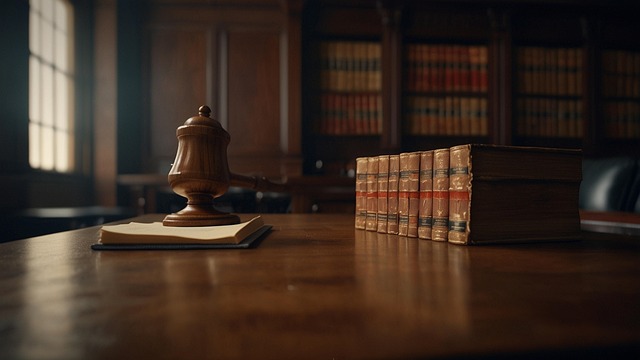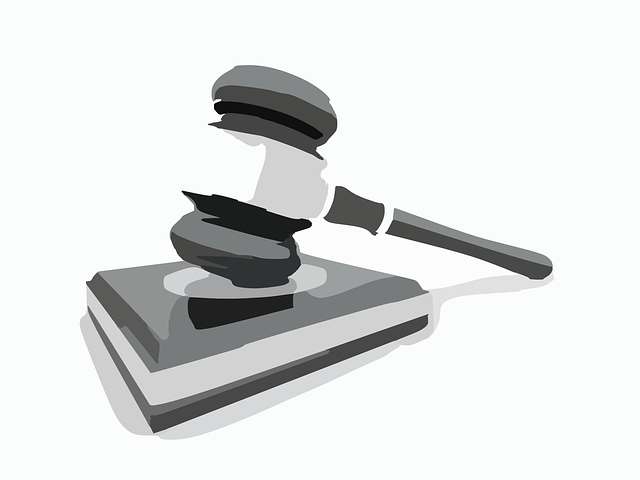Understanding how prior convictions impact sentencing outcomes is vital for navigating criminal law complexities. Past criminal history significantly shapes sentences, with repeat offenses and serious crimes leading to harsher penalties. Judges weigh these factors, balancing punishment and rehabilitation, to determine sentence severity. In high-stakes cases, effective strategies involve negotiating plea deals, presenting character evidence, and highlighting unique mitigating circumstances to achieve fairness.
“Unraveling the intricate relationship between criminal law cases and prior convictions, this comprehensive guide delves into the multifaceted impact on sentencing. From understanding the weight of previous offenses to exploring judicial discretion, we dissect key factors influencing outcome determination. Through real-world case studies, gain insights into sentencing dynamics. Furthermore, discover strategic legal defenses that can mitigate sentence severity, offering valuable perspectives for both legal professionals and enthusiasts alike. Uncover how prior convictions shape outcomes, shedding light on the complexities within criminal justice.”
- Understanding Prior Convictions: A Criminal Law Perspective
- The Impact on Sentencing: Factors and Considerations
- Judicial Discretion and Its Role in Sentencing Decisions
- Case Studies: Real-World Examples of Sentencing Outcomes
- Legal Defenses and Strategies for Mitigating Sentence Severity
Understanding Prior Convictions: A Criminal Law Perspective

Understanding prior convictions is a critical aspect of criminal law cases, as it significantly influences sentencing outcomes. In many jurisdictions, a defendant’s past criminal history plays a pivotal role in determining their sentence for current offenses. This is primarily because prior convictions are viewed as indicators of an individual’s propensity to reoffend and as a guide to crafting fair and just punishments. The impact of these previous arrests and convictions can vary widely, from enhancing penalties for repeat offenders to influencing the type of rehabilitation services offered.
The presence of prior convictions often leads to harsher sentences due to heightened risks associated with recidivism. This is particularly true in cases where the new offense is considered a violation of trust or involves violence. Moreover, the interaction between the criminal justice system and both the philanthropic and political communities as well as corporate and individual clients shapes how these prior records are considered. This complex web of stakeholders ensures that sentencing guidelines are not only fair but also serve the greater good by deterring future crimes while offering suitable rehabilitative measures.
The Impact on Sentencing: Factors and Considerations

The impact of prior convictions on sentencing outcomes is a significant aspect of criminal law. When a defendant has a history of previous offenses, it influences the judge’s decision when determining the appropriate sentence. This is because the court considers recidivism as a factor in assessing the severity and length of punishment. How prior convictions affect sentencing can be attributed to several key considerations.
Firstly, the nature and number of past convictions play a crucial role. A history of violent crimes or serious offenses will carry more weight than minor infractions. Additionally, the court examines the similarity between the current charge and previous convictions, especially in cases of white-collar and economic crimes, which may lead to harsher sentences if the defendant has been convicted of similar financial misdeeds. All stages of the investigative and enforcement process are impacted by these considerations, ultimately affecting the final sentencing decision.
Judicial Discretion and Its Role in Sentencing Decisions

In criminal law cases, judicial discretion plays a pivotal role in sentencing decisions. Judges are tasked with balancing several factors, including the gravity of the offense, the defendant’s prior convictions, and their rehabilitation potential. This discretion is not arbitrary; it’s guided by an unprecedented track record of similar cases, ensuring consistency and fairness across the justice system. Prior convictions significantly affect sentencing outcomes as they reflect an individual’s history and propensity for criminal behavior.
The interplay between a defendant’s past misdeeds and the current charges shapes the judge’s perspective during all stages of the investigative and enforcement process. This is particularly crucial in determining the severity of punishment, with judges often employing a range of sentencing options from fines and community service to imprisonment, depending on the specific circumstances of each case. The role of judicial discretion, therefore, extends beyond merely meting out punishment; it’s about tailoring justice to fit the unique needs and merits of each criminal law case.
Case Studies: Real-World Examples of Sentencing Outcomes

In criminal law cases, understanding how prior convictions affect sentencing outcomes is key to appreciating the complexities of the justice system. Case studies from real-world scenarios reveal that a defendant’s past legal history significantly influences their sentence. For instance, a person with multiple prior convictions for similar offenses often faces harsher penalties, reflecting the court’s recognition of recurring patterns of behavior. This trend underscores how the law aims to deter repeat offenders and protect society.
Conversely, an unprecedented track record of good conduct and successful completion of previous sentences can lead to more lenient outcomes. The judiciary considers these factors during all stages of the investigative and enforcement process, aiming for a balanced approach that acknowledges both culpability and potential for reform. Such cases highlight the importance of rehabilitation in criminal justice, where sentencing becomes a tool not just for punishment but also for encouraging positive change.
Legal Defenses and Strategies for Mitigating Sentence Severity

In criminal law cases, especially high-stakes ones involving white-collar and economic crimes, understanding legal defenses and sentence mitigation strategies is paramount. One significant factor that influences sentencing outcomes is the defendant’s prior convictions. The presence or severity of previous criminal records can substantially impact the judge’s decision, often leading to longer sentences or more stringent conditions. For instance, if a defendant has multiple prior convictions for similar offenses, the court may view them as an ongoing pattern of misconduct, which could result in harsher penalties.
Defendants facing such charges should aim for a complete dismissal of all charges rather than just reducing their sentence. Effective legal strategies might include negotiating plea deals that offer reduced charges or sentences, presenting robust character evidence to counteract prior convictions, and highlighting mitigating circumstances unique to the case. These approaches can help in achieving more favorable outcomes, ensuring fairness in the justice system.
In conclusion, understanding how prior convictions impact sentencing outcomes is paramount in criminal law. The interplay between previous offenses and current charges shapes judicial discretion, influencing sentence severity. By examining real-world case studies and exploring legal defenses, individuals facing criminal charges can navigate the complexities of sentencing. Recognizing the factors at play, as discussed in this article, empowers both defendants and legal professionals to advocate for more equitable outcomes, ultimately refining the criminal justice system’s fairness and consistency.






